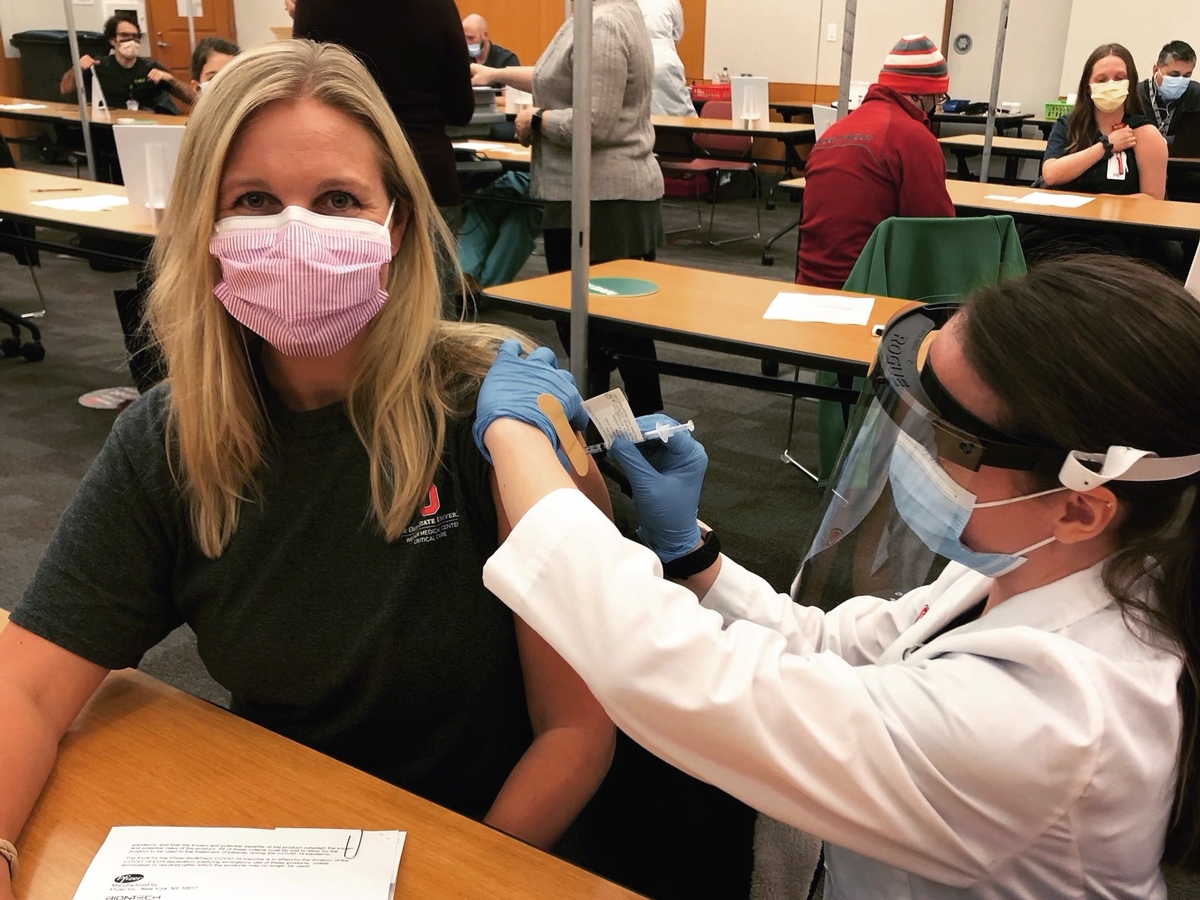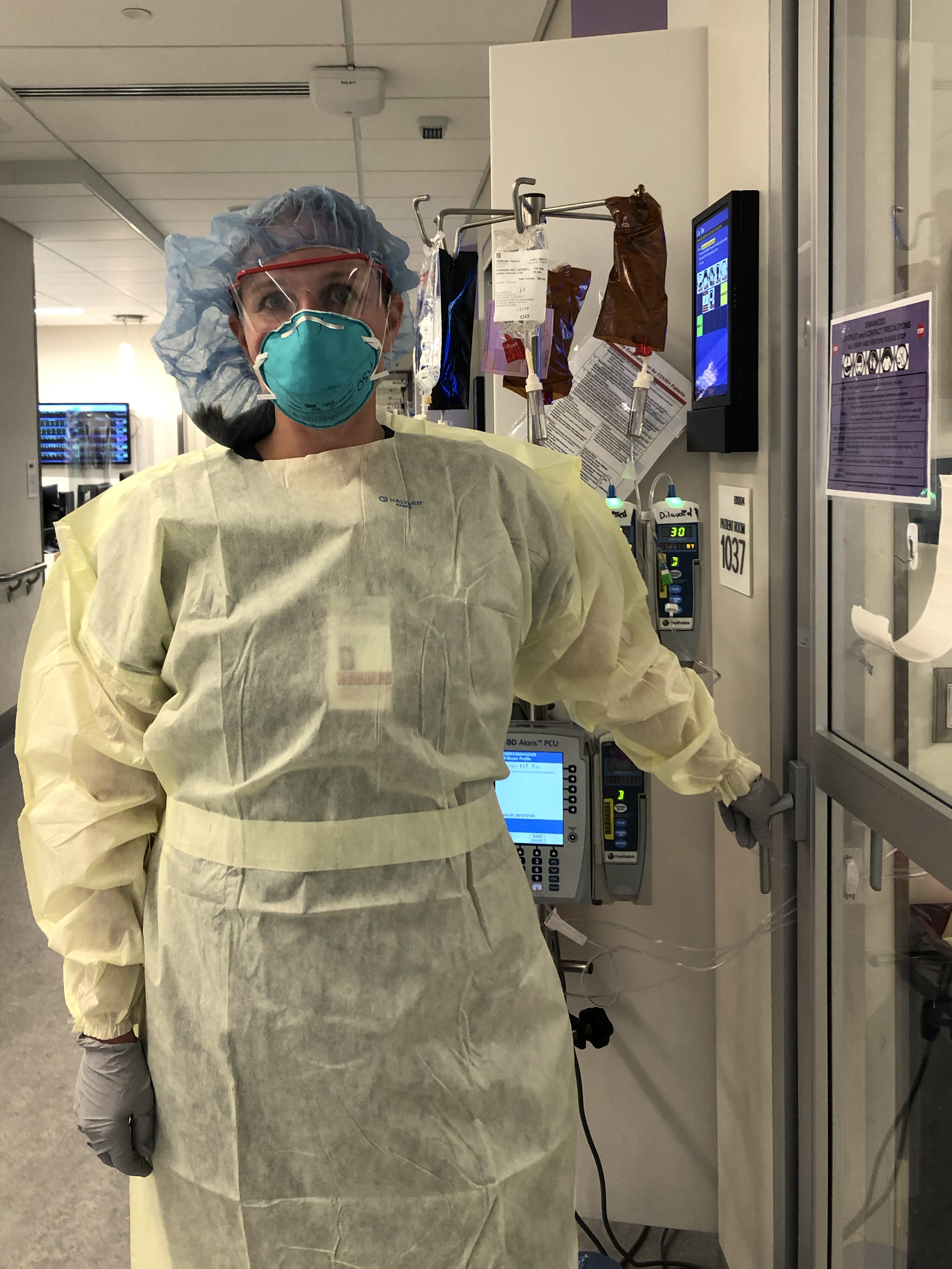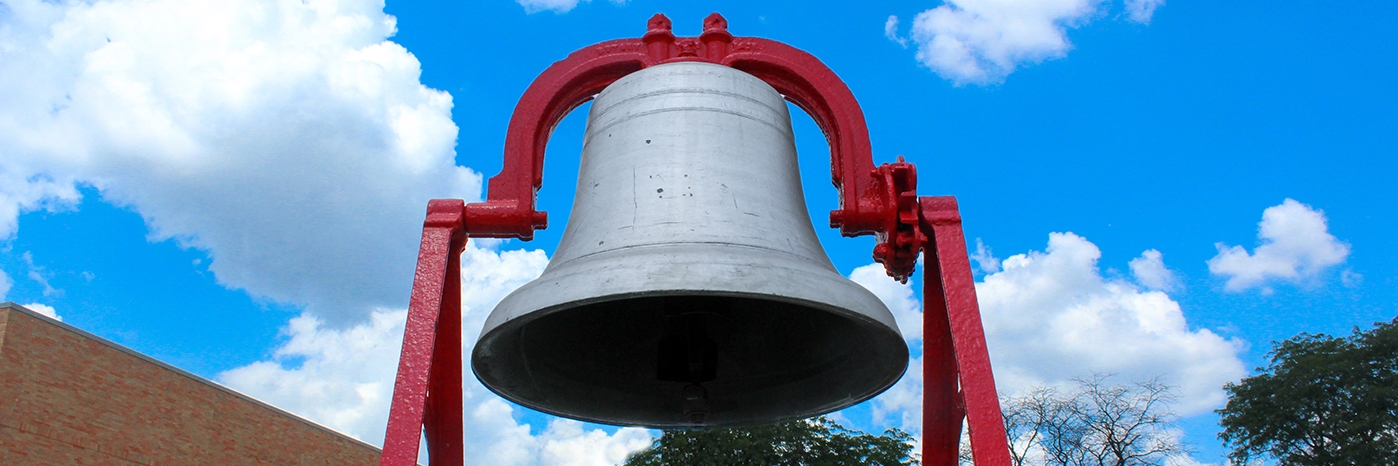Voices Ringing
Meet Dr. Lisa (Wahlrab) Walsh '05, one of the first recipients of the COVID-19 vaccine

Dr. Lisa (Wahlrab) Walsh '05 is an Acute Care Nurse Practitioner at The Ohio State University Wexner Medical Center and James Cancer Hospital and was one of the first people in the State of Ohio to receive the Pfizer-BioNTech COVID-19 vaccine on Wednesday, December 16, 2020. She works in the medical intensive care unit as the primary provider for critically ill patients on life support, including patients on ventilators who have respiratory failure. Lisa has been part of the primary COVID unit since the outbreak of the pandemic.
How did the pandemic change your responsibilities?
We’re trained to provide the specialized care that these patients need. They wouldn’t be able to survive without the ventilators and the highly trained nursing staff that take care of them. They’ve been sicker than any other patients that we’ve had. They’re sicker than a regular flu patient. Their respiratory failure is much worse, and it requires a lot more specialized care that can only be provided in the intensive care unit.

Equipment, treats COVID-19 patients at The Ohio State
University Wexner Medical Center ICU.
What has been the biggest challenge of treating patients?
The biggest challenge through all this has been the need for the hospital to limit visitors and not let families be there to see their loved ones. It’s not just COVID patients. The hospital hasn’t allowed visitors for other patients. There have been exceptions made for patients who are actively dying. It’s been really hard to communicate with families. We try to do it over the phone or on FaceTime, but it’s just not the same as having family there in person to support their loved ones.
When did you find out you would receive a vaccine?
Rumors started at the beginning of December that in mid-December, vaccines would be available at Ohio State. Since we are part of the group on the front line taking care of COVID patients, they told us we would be in the first group to get the vaccine.
What went through your mind when you found out you would be one of the first people to receive the vaccine?
I was pretty excited. I think everyone I work with has been excited because we’ve been looking for an end to all this. The work has been exhausting, and we’re always overflowed with patients who have been sicker than our other ICU patients. Everyone is wearing down, so to have a vaccine available and know that we are top priority so we can stay healthy to take care of the sick people. Hopefully soon, it will be available to the public so that we have less patients so that our work can go back to normal. I think everyone on my team is excited and anxious to get the vaccine. We understand that even though this is a new virus and a new vaccine, the vaccine technology itself has been around for a long time. Everyone feels safe and confident to get the vaccine.
What are some of the lessons you learned at Carroll that have helped you navigate this situation?
Growing up, I always knew I wanted to be a nurse and help people. A sense of giving back, doing good, and helping others is something really was instilled in me at Carroll through volunteer work. Just wanting to be a productive member of society and somebody who is trained and available to help others is the biggest thing that my Catholic education at Carroll instilled in me.
What should people know about staying healthy as the vaccine becomes more widely available?
I would impress on people the importance of social distancing and wearing masks for hopefully just a few more months. Hopefully, this is the light at the end of the tunnel. It’s still important to avoid getting sick and getting others sick because it has been terrible in the hospitals with how sick these patients are.


